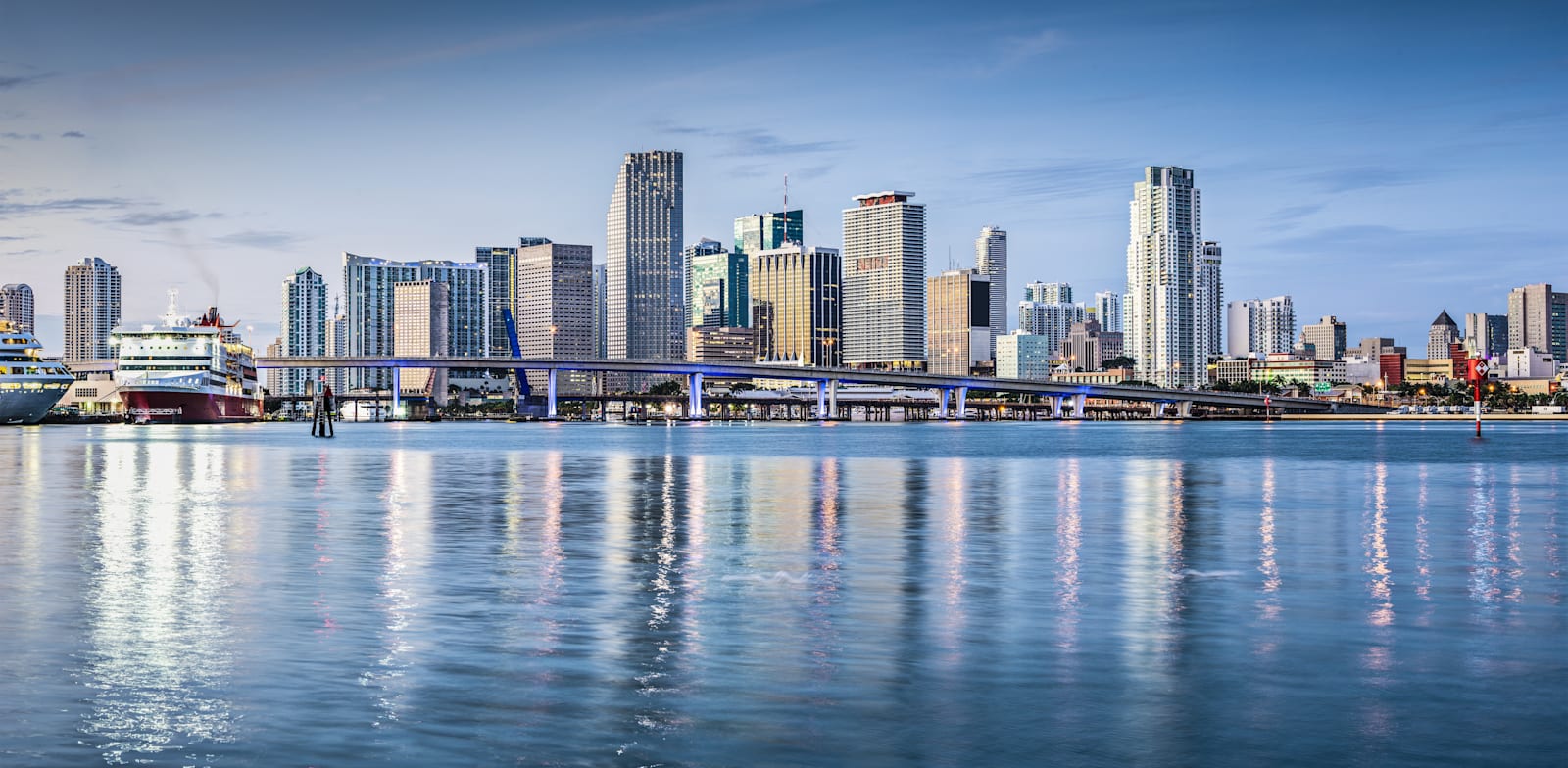The increase in housing prices in Miami slowed down but continued in the first quarter of the year. It will be fueled by steady demand, even though rising mortgage rates are pulling down home prices in most parts of the US.
The median price in Miami-Dade County rose 5.2 percent during the quarter, compared to the same quarter a year earlier, according to Ron Schofield, president of Berkshire Hathaway Home Services EWM Realty.
The data offers new evidence that Miami’s housing market is expected to remain stronger than any other city in the U.S. Miami posted the fastest year-over-year increase in home prices — 15.9% in 2022, according to the S&P CoreLogic Case-Shiller index.
People and businesses continue to flock to the sunny state – and especially to South Florida – they are drawn to the warm year-round weather, the liberal regulation towards businesses and the lack of state income tax. Florida “gained” more residents than any other US state in 2022, according to the Central Bureau of Statistics, and Miami’s housing stock fell by about half compared to the first quarter of 2020.
Residents from New York and other northeastern states are among the most active buyers. Most of the driver’s license changes last year were from New York, according to data from the Florida Department of Motor Vehicles. Many of the newcomers, accustomed to high real estate prices in New York City and the suburbs, Help drive up house prices and rents in Miami. “Housing prices in South Florida have adjusted to a higher level,” says Jonathan Miller, market analyst and author of the Douglas Elliman report on Miami.
Not all momentum in the quarter was positive. The volume of transactions is falling rapidly. Monthly sales are down steeply in Miami-Dade County, more than 40 percent in the past year, according to Miller.
The rate of price increase is also slowing down. This is a sign that several consecutive months of high mortgages are beginning to give their signals on house prices and transactions. The 5.2% increase in the first quarter was much lower than the 29.4% pace in 2021, according to the S&P CoreLogic Case-Shiller index.
The housing market in Miami faces two more obstacles. Florida homeowners are experiencing a large increase in insurance premiums, stemming in part from high litigation costs and large losses due to natural disasters. In the past three years, premiums have risen 40 percent, says Jim McHugh, chief operating officer of NSI, an independent insurance agency in Miami. “Insurance premiums are becoming a significant issue for the middle-class home buyer,” says Mr. McHugh. “.
A new state law requires condo buildings to self-fund all reserves and conduct more structural inspections, making condos even more expensive. Special tests that cover these new requirements can cost $100,000 per apartment, or even more. Older apartments don’t qualify for mortgages because of structural problems and the need for expensive inspections, says Anibal Torres, a mortgage officer at 1st Financial Bank in Miami.
Will the prices be able to maintain their level?
Despite this, some economists predict that prices in Miami will manage to maintain their level more than elsewhere. Thanks to the lack of inventory and job growth in Miami-Dade County, home prices in the area are expected to remain stable or increase at a single-digit rate, but not decrease, said Omi Day Kororton, chief economist for the Miami Association of Realtors.
A Goldman Sachs report from January predicted that once-hot markets such as Austin, San Francisco and Seattle would post double-digit declines in 2022, while the Miami real estate market was flat.
In February, the number of new months signed in Miami-Dade jumped 91.8% to the highest level in three and a half years, according to a report by Douglas Elliman.
Dale Chapman Webb offered a three-bedroom home in Coral Gables in February for double what she paid for it in 2016. The house was recently renovated. To her surprise, it sold within two days. “I was sure the market was cooling,” Webb said.
The banking crisis that clouded the atmosphere in the commercial real estate sector also caused house sales in Miami to slow down, because it was difficult to obtain financing.
Demand for ultra-luxury housing, a market segment where buyers can sometimes pay cash, has been less affected, said Danny Herzberg, founder of Coldwell Banker Realty-affiliated Jills Zeder. “Our market has caught up and even overtaken some very strong markets in the country,” he said. “I think it reflects the transformation of the city.”
